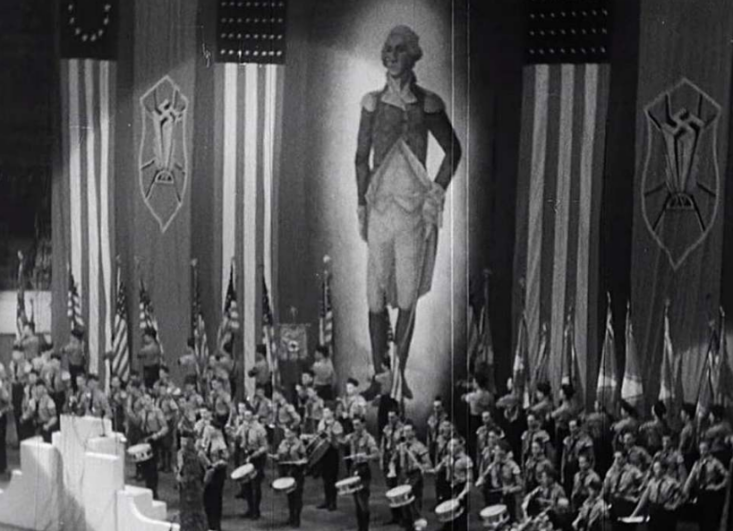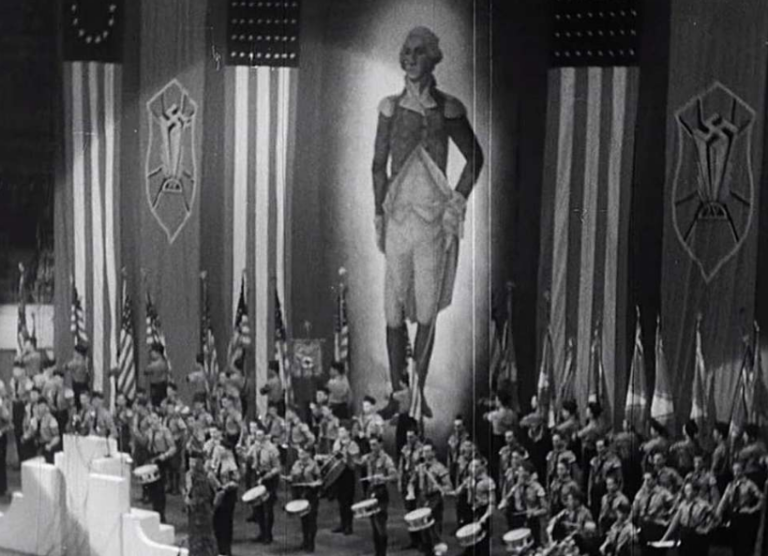In recent years, the Republican Party has drifted toward authoritarian nationalism. Globalists within the party are nearing retirement and young people, deeply skeptical of the party’s previously dominant neoconservative wing, are replacing them. I’m also skeptical of neoconservatism, but I don’t believe authoritarian nationalism is the solution.
Consider the kind of rhetoric which is more and more widespread:
Republican congressional leaders are torn over what to do with Rep. Marjorie Taylor Greene after the congresswoman spoke at a weekend event hosted by a white nationalist who marveled at the Russia’s invasion of Ukraine as crowds erupted in chants of “Putin!”
House Republican Leader Kevin McCarthy called the congresswoman’s speech on the same stage “unacceptable.” Senate Republican leader Mitch McConnell said “there is no place in the Republican Party for white supremacists.”
It is clear that there is a place within the Republican Party for white nationalists, although Greene certainly constitutes an extreme case. But much more influential personalities use rhetoric almost as inflammatory:
The House of Representatives passed legislation helping three U.S. allies: Ukraine, Israel and Taiwan. Senator Mike Lee, Republican of Utah, called it “a hawkish wish list imposed by President Johnson.”
I wonder what Senator Lee would have thought if the United States provided aid to countries defending themselves against Hitler.
To be clear, I have no problem with people who oppose aid to Ukraine. Maybe it will end up being a waste of money. But Lee goes too far when he suggests that those who help a small country fight for survival are somehow “warmongers.” It was Putin who launched the invasion.
You hear similar opinions expressed by influential experts:
Tucker Carlson is not a Republican Party official, but he is an influential Trump supporter, and Carlson has often done so. echoes Russian propaganda. At least once, he went so far as to say that he hoped Russia would win its war against Ukraine.
Last month, Carlson aired a two-hour interview with Putin in which Putin made false statements about Ukraine, Zelensky and Western leaders, without any resistance from Carlson. In another video recorded in a Russian grocery store, Carlson suggested that life in Russia was better than in the United States.
And the most influential figure in the Republican Party is clearly ambivalent about Putin:
Trump also avoided criticizing Putin for the mysterious death this month of his most prominent domestic critic, Alexei Navalny, and repeatedly praised Putin as a strong and intelligent leader. At a town hall last year, Trump refused to say whether he wanted Ukraine or Russia to win the war.
All of this echoes the “America First” movement that preceded the United States’ entry into World War II. One important difference is that in 1940, neither major party nominated Charles Lindbergh for president.
Where did the nationalist wing of the GOP start to go astray? I don’t think the problem is their rejection of neoconservatism: American foreign policy has made a number of serious mistakes in trying to remake the world in our image. Rather, they seem to have misinterpreted the nature of Putin’s regime. Putin’s conservative supporters often emphasize his opposition to woke forms of liberalism, such as gay rights. He is seen as someone who defends traditional (religious) values. But Putin is not only opposed to left-wing forms of liberalism; he rejects any form of liberalism, including classical liberalism. Putin’s Republican supporters do not seem to understand that he also opposes liberal values such as pluralism, freedom of speech and assembly, and free elections. They make the classic mistake of assuming that the enemy of my enemy is my friend.



